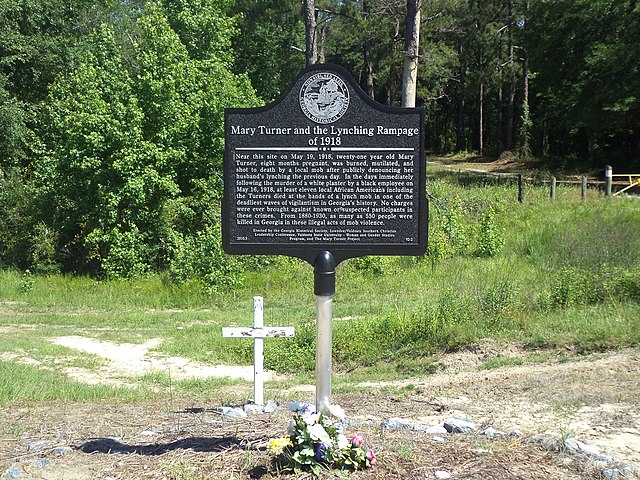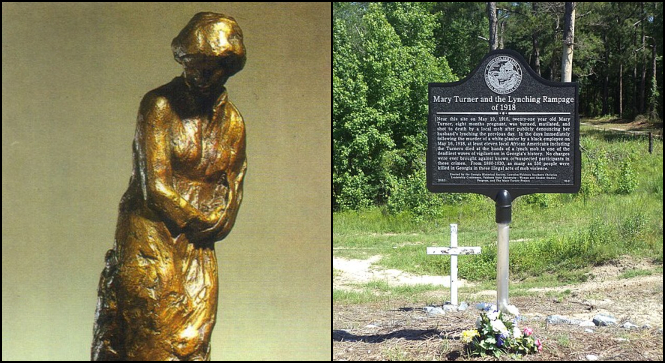The brutal 1918 lynching of Mary Turner, a young Black woman in Lowndes County, Georgia, stands as one of the most egregious failures of the American legal system to protect its citizens or enforce justice.
More than a century later, her murder remains a powerful symbol of how state and local authorities allowed racial violence to thrive in the Jim Crow South—and why legal recognition of historical racial terror is still critically relevant today.
Mary Turner, 21 years old and eight months pregnant, was lynched after publicly condemning the unlawful mob killing of her husband, Hayes Turner, a Black man wrongly targeted during a wave of retaliatory lynchings. His death followed the killing of white plantation owner Hampton Smith, whose labor practices relied heavily on Georgia’s convict leasing system and the exploitation of Black workers.

Rather than pursue lawful justice, white mobs launched a coordinated campaign of terror. At least 13 Black individuals were lynched in connection to Smith’s death, including Hayes Turner—despite no evidence linking him to the crime.
When Mary Turner identified members of the mob and demanded accountability, she became the next target. On May 19, 1918, Turner was kidnapped, hung upside down from a tree, burned alive, and posthumously mutilated in an act of state-tolerated racial violence.
Her unborn child was cut from her body and murdered in front of onlookers. Turner’s body was then riddled with bullets.
No one was arrested. No one was charged. No one was convicted.
Legal records and contemporary press accounts show that local authorities neither prevented the violence nor investigated it.

The absence of prosecutions reflects the systemic failure of the legal system to treat Black Americans as citizens under the law during this era.
Following Turner’s death, the NAACP launched a formal investigation and began cataloging lynching cases across the United States, including this one.
That work laid a foundation for the modern civil rights movement and efforts to introduce federal anti-lynching legislation—efforts which repeatedly failed for over a century until the Emmett Till Antilynching Act was finally signed into law in 2022.
Yet Mary Turner’s case remains largely unresolved in terms of legal recognition or formal reparations. Advocates argue her story warrants renewed legal attention, not only as a historical lesson but as part of a broader call for systemic acknowledgment and justice for descendants of lynching victims.

In 2010, a memorial marker was installed near the site of her death by the Mary Turner Project, a group dedicated to racial justice and historical truth. The marker has since been defaced multiple times—further evidence that racial terror and resistance to truth-telling remain present even in the 21st century.
The story of Mary Turner continues to challenge legal institutions, historians, and civil rights scholars to reckon with a past that was never prosecuted and a legal system that chose silence over justice.

